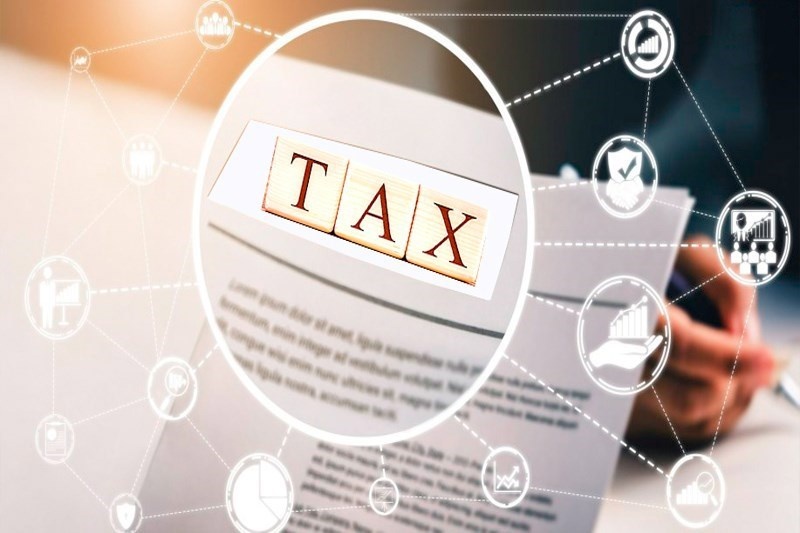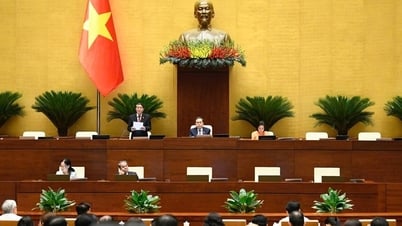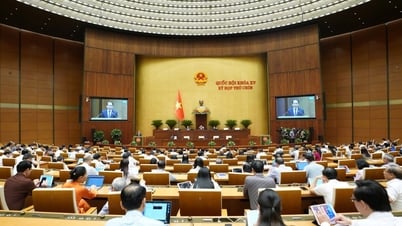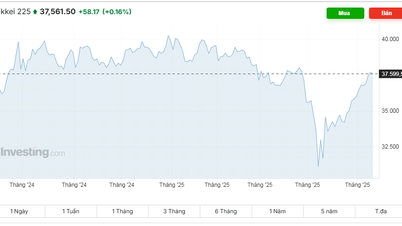Automatic Deductions from Customer Accounts: Risks to Legal Rights
Based on the synthesis of opinions from member banks, the document of the Vietnam Banking Association requested the drafting agency to consider supplementing, adjusting or removing inappropriate contents. Specifically, the Vietnam Banking Association requested the drafting agency to consider removing the provision in Clause 3, Article 27 of the Draft Outline of the Law on Tax Administration (replacement) because this provision is assigning the responsibility to commercial banks to proactively determine the subjects and amounts of tax deductions like the tax collection agency.
The Banking Association affirms that commercial banks are payment intermediaries, performing payment services and transferring money at the request of account holders; banks are also not a party in the transaction of buying and selling goods and services between customers and foreign suppliers, and do not have sufficient information to identify the type of goods and services of each transaction according to the business line to apply the appropriate tax rate. In case of incorrect determination of the rate and deduction lower than the regulations, banks may be subject to tax collection, late payment fees and administrative penalties by the Tax Authorities. In case of deduction higher than the regulations, banks may be subject to claims for compensation from foreign suppliers.
The act of a credit institution automatically deducting money from a customer's account to pay taxes will affect the legal rights and interests of the organization and individual's property. |
Therefore, the act of a credit institution automatically deducting money from a customer's account to pay taxes will affect the legitimate rights and interests of the property of organizations and individuals as recognized by the Constitution and law and is inconsistent with the responsibility to protect customer rights as prescribed in Clause 3, Article 10 of the Law on Credit Institutions 2024.
"Paying taxes is the duty of taxpayers. The regulation that credit institutions must pay tax obligations on behalf of customers does not ensure the operational autonomy of credit institutions as prescribed in Article 7 of the Law on Credit Institutions 2024 and affects the legitimate rights of credit institutions (having to spend money to pay taxes on behalf of customers)," the Banking Association affirmed.
In the document, the Banking Association also requested the Drafting Agency to consider supplementing the content in Clause 4, Article 27 of the Draft on the exclusion principle when the balance in the taxpayer's account is securing the obligation at that credit institution.
According to the Banking Association, in recent times, there have been many cases where the balance in a taxpayer's account has been subject to compulsory measures of freezing and withdrawing money to enforce administrative decisions on tax management. However, the balance in that account is currently a collateral for the taxpayer's loan at a credit institution or is an account for debt collection by a credit institution. Therefore, when receiving a compulsory decision from the tax authority, it not only affects the taxpayer but also seriously affects the credit granting and debt collection activities of the credit institution.
Regarding tax code recording, the Banking Association proposed that the Drafting Agency consider removing Clause 4, Article 35 because it is inconsistent with the Law on Credit Institutions and not feasible in practice.
Accordingly, Clause 4, Article 35 of the Draft stipulates: "Commercial banks and other credit institutions must record the tax code in the account opening records and transaction documents through the taxpayer's account."
The Banking Association believes that the contents of the customer's account opening documents are within the scope of the Law on Credit Institutions and related guiding documents. In addition, credit institutions do not have the basis to accurately and fully determine the customer's tax code during the account opening process. There are many cases where customers do not have a tax code (customers are individuals, freelancers, foreigners coming to Vietnam for a short time...).
Regulations on issuing electronic invoices without distinguishing the value of each time lead to many consequences.
Regarding the issuance of invoices, in Article 90 of the Draft Law on Tax Administration (replacement), the Ministry of Finance proposed to add a regulation on the payment value that must be invoiced (for the specific business model directly to consumers). In reality, commercial banks have a very large number of individual customers (up to millions of customers), most of whom do not need to receive transaction invoices. The Banking Association believes that the regulation of having to issue electronic invoices regardless of the value of each service provided will lead to many consequences.
One is wasting machine and human resources to operate, manage, and edit programs to ensure the issuance of invoices to subjects that do not need invoices.
Second, with a large number of invoices, it is impossible to ensure timely digital signature within the day (the average time to sign 10 million invoices is expected to be >250 hours, equivalent to more than 10 days).
Third, in addition to putting pressure and affecting the performance of the enterprise's information technology system, issuing a large number of invoices as above affects the Tax Authority's electronic invoice data reception portal.
Therefore, the Banking Association recommends that the Drafting Agency consider the regulation in the direction of allowing commercial banks to issue total (combined) invoices for transactions of individual customers who do not need to receive invoices.
The Association also proposed to amend the provisions in Section c, Clause 2, Article 138 of the Draft on administrative penalties for under-declaration of tax. According to the Banking Association, in cases where the buyer purchases goods or uses services without intentionally violating and has proven that the illegal invoices and documents are due to the fault of the seller, then administrative penalties are inappropriate. Therefore, it is recommended that the Drafting Agency consider amending in the direction of: Not imposing administrative penalties for the act of "using illegal invoices and documents, illegally using invoices to account for the value of purchased goods and services to reduce the amount of tax payable or increase the amount of tax exempted, reduced, or refunded, but the buyer of goods and services using illegal invoices and documents proves that the violation of using illegal invoices belongs to the seller".
In addition, the Banking Association believes that it is necessary to add force majeure cases to Article 144 of the Draft, when banks cannot transfer money from taxpayers' accounts to state budget accounts due to objective factors, such as receiving multiple requests from competent authorities at the same time.
The Association's document also provided comments on a number of other issues such as declaration and payment of taxes on the transfer of real estate as collateral for business loans; on declaration and payment of taxes on leasing of collateral during the time of business processing; on transferring money from taxpayers' accounts to state budget accounts.
Source: https://thoibaonganhang.vn/hiep-hoi-ngan-hang-kien-nghi-sua-doi-du-thao-luat-quan-ly-thue-go-vuong-mac-cho-ngan-hang-162159.html






![[Photo] Buddha's Birthday 2025: Honoring the message of love, wisdom, and tolerance](https://vphoto.vietnam.vn/thumb/1200x675/vietnam/resource/IMAGE/2025/5/12/8cd2a70beb264374b41fc5d36add6c3d)
![[Photo] Prime Minister Pham Minh Chinh starts construction of vital highway through Thai Binh and Nam Dinh](https://vphoto.vietnam.vn/thumb/1200x675/vietnam/resource/IMAGE/2025/5/12/52d98584ccea4c8dbf7c7f7484433af5)
![[Photo] Prime Minister Pham Minh Chinh works with the Standing Committee of Thai Binh Provincial Party Committee](https://vphoto.vietnam.vn/thumb/1200x675/vietnam/resource/IMAGE/2025/5/12/f514ab990c544e05a446f77bba59c7d1)





















































































Comment (0)